- Register
- Log in to Tune-In
- Wishlist (0)
-
Shopping cart
(0)
You have no items in your shopping cart.
Beatles News
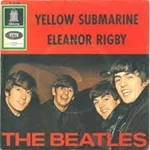
It's probably fair to say that when the Beatles released the double-A sided 'Yellow Submarine' and 'Eleanor Rigby' in 1966, the world did not see it coming.
As a rule, global stars at the top of their game did not release novelty songs. Coupling one with a string-laden ballad about loneliness must have seemed plain odd.
Reviewing the Beatles' album 'Revolver' in a music magazine in 1966, the Kinks' Ray Davies probably echoed the view of many 'serious' musicians of the time. He dismissed 'Yellow Submarine' as 'a load of rubbish, really'. And he was equally dismissive of 'Eleanor Rigby', calling it a song 'to please music teachers in primary schools'.
Source: Jim Hayes/independent.ie
details
Before his death on August 16, 1977, Elvis Presley had 16 UK number singles. From his fifth to his fifteenth he had been the record holder. That was until The Beatles caught up and then overtook The King with 1969’s Get Back and The Ballad of John and Yoko.
Then in 1970, Elvis matched The Beatles’ 16 UK No 1s with The Wonder of You.
But it wasn’t until after his death that The King overtook The Fab Four and, to this day, remains the record holder for the most UK No 1s.
In fact, it was 43 years ago today that marked Elvis’ incredible posthumous success.
Source: George Simpson/express.co.uk
details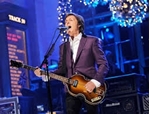
From playing beloved SNL characters like Devin and Stefon to starring as a hitman in his HBO dark comedy series Barry, it’s fair to assume that Bill Hader is a confident and comfortable performer. But that would be a mistake! Indeed, Hader has suffered from relentless stage fright throughout his prolific career.
In this Off Camera video, the funnyman reveals a surprisingly serious side of himself; he admits, “I’m a really anxious person. I have like legit anxiety. I’m hosting ‘Saturday Night Live’ next week, and I’m going to be a wreck–like I have to fully prepare myself.”
His nerves have caused flu-like symptoms, dizziness, dread, and a sense that his arms are heavy. Overwhelmed, he’s paced around backstage or sat petrified in chairs waiting for his cue to go onstage. In his recent SNL opening monologue, Hader told the audience, “I was on [SNL] for eight seasons … and I was nervous for every one of them!” Once the legendary Beatles rock star, Paul McCartney, observed Hader struggling backstage at SNL and advised him to drink water or tea to ease his details

John Lennon, Paul McCartney, George Harrison and Ringo Starr.
These four men are known around the world for changing the music industry forever. They are arguably the most influential musicians of all time.
While there were early members throughout the Beatles’ existence, one Houstonian was claimed as the fifth member of this band and helped lead the group to a successful album. His name was Billy Preston.
Singer, songwriter and keyboardist Billy Preston was born on Sept. 2, 1946, in Houston.
He famously played with many talented musicians including the Rolling Stones, Aretha Franklin, Bob Dylan and Eric Clapton, among others.
Source: Carlos Hernandez/click2houston.com
details
The Beatles spanned quite a large career, with a huge amount of drama surrounding them. Although the band managed to get through to the end of their careers unscathed - more or less - they did suffer a number of arguments and disagreements. One of these arguments saw Paul McCartney and John Lennon falling out with Ringo Starr.
Starr found himself feeling a little under appreciated during 1968, prompting his departure from the band.
This halted the writing and recording of The White Album - arguably some of the band's best work.
With the band's latest album on hold, the fab four were struggling to work out what to do next with their careers, as Ringo was still AWOL, and the rest of the band were missing a drummer.
Thankfully, this schism in the band didn't last very long.
Source: Callum Crumlish/express.co.uk
details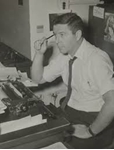
The most popular newspaper columnist in Chicago, Jack Mabley had one job on Sept. 5, 1964 -- introduce The Beatles to the screaming crowd at Chicago's International Amphitheatre.
Mabley got that honor at the band's first Chicago concert in the oddest of ways. When Beatlemania started sweeping through the United States for the group's 1964 tour, Mabley thought it was a joke.
"I think they're funny. They keep telling interviewers they can't sing," Mabley wrote. "They're laughing at music, they're laughing at the kids, they're laughing at the world, and even at themselves."
The Glenview dad infuriated his three daughters by suggesting that The Beatles "wouldn't even be remembered" in 25 years.
The National Association for the Advancement of Beatle People made Mabley member No. 122, and Chicago promoter Frank Fried gave Mabley an invitation to introduce John Lennon, Paul McCartney, George Harrison and Ringo Starr.
Source: Burt Constable/dailyherald.com
details
John Lennon was never one to beat around the bush when it came to how he really felt about The Beatles songs. But did you know that the late star once described one of his own tracks as basically signifying nothing? Spotted by Far Out Magazine in Lennon’s 1980 Playboy interview, the song in question is Yellow Submarine’s Hey Bulldog.
Lennon said: “I’m not an album person.
“There’s too many fill-ins and padding.
“I like the inspired stuff, not the created, clever stuff.”
And he described Hey Bulldog as: “A good-sounding record that means nothing.”
Originally called She Can Talk To Me, Hey Bulldog has become something of a fan favourite in more recent years.
While Paul McCartney said of the song some 14 years later: “I remember Hey Bulldog as being one of John’s songs and I helped him finish it off in the studio, but it’s mainly his vibe.
“There’s a little rap at the end between John and I, we went into a crazy little thing at the end.
Source: George Simpson/express.co.uk
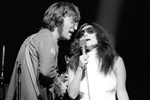
The Beatles legend John Lennon’s widow, Yoko Ono, took to her official Twitter account to reveal John’s thoughts about the people and the future of the world and showed how a brilliant man he was.
Yoko mentioned that John was a man who believed the truth and power of the people will change this world and showed her fate to this idea. Moreover, she wrote her own thoughts about how we can shape the future.
Source: Eren Merdan Gursoy/metalheadzone.com
details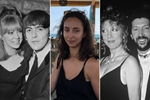
The legendary rock and blues guitarist Eric Clapton’s daughter Ruth Clapton-Bartlett replied to a fan’s question wondering if she liked The Beatles and unveiled her actual opinions about the band and her father’s once rival George Harrison.
As you may remember, Eric Clapton and lead guitarist of The Beatles George Harrison were the two sides of a famous love triangle including the English photographer Pattie Boyd.
George Harrison and his wife Pattie Boyd diverged from each other due to alcohol and drug overuse, and various affairs a few years later they got married. At the time, Eric Clapton and George Harrison were spending most of their time working together and eventually, Clapton fell in love with his friend’s wife.
Source: Almila Kutuk/metalheadzone.com
details
The Beatles were one of the most famous bands in the world by the time 1967 came around. However, this year was to be tragic as it signalled the death of their manager, Brian Epstein. Many would take a long time to recover from such a loss – but what did the Beatles do?
Brian Epstein was the manager of The Fab Four right at the beginning of their careers.
In fact, it had been Brian who sacked the drummer Pete Best, replacing him with the now iconic Sir Ringo Starr.
However, in the days before his death, Brian was, according to Barry Miles’ book Many Years From Now, in the Priory Clinic where he was struggling to deal with insomnia and an addiction to amphetamines.
Source: truehollywoodtalk.com
details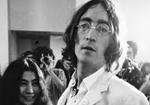
When Geoff Emerick published Here, There and Everywhere (2006) about his time working for The Beatles, fans of the Fab Four had cause to celebrate. Previously, if you wanted to hear from the inner circle at Beatles sessions, you had to go to the bone-dry All You Need Is Ears (1979) by producer George Martin.
Emerick didn’t disappoint in the slightest. Between anecdotes of close-mic’ing violin players and piecing together “Strawberry Field Forever” from two separate recordings, Emerick told a few unforgettable tales featuring Beatles at one another’s throats.
One of those stories revolved around the 1968 sessions for “Ob-La-Di, Ob-La-Da.” In Emerick’s recollection, John Lennon got sick of the Paul McCartney-penned track shortly after the sessions began. (John referred to it as more of “Paul’s granny music sh*t,” Emerick wrote in Here, There and Everywhere.)
Source: entertainment--news.com
details
"It's just great to be back," said Peter Naylor, a superfan of the Fab Four, as the city centre venue reopened its doors on Thursday.
"Such an iconic club, such great music. We missed it, missed coming down here," he told AFP.
Billed as "the most famous club in the world" and the "cradle of British pop music", the Cavern shut its doors in late March as the coronavirus pandemic took hold in Britain.
Its reopening coincided with the first day of the seven-day annual International Beatleweek festival, which celebrates the music of the biggest pop band in history.
Most events have been cancelled this year due to restrictions on audience numbers, but the cramped underground venue is hosting gigs and live-streaming them to fans across the globe.
Events held across the northwest English city coincide with the 50th year since the band broke up.
Source: news18.com
details
The Liverpool cinema frequently visited by John Lennon and George Harrison during their youth is under threat of being rebuilt by supermarket chain Lidl.
The building was best known as the Abbey Cinema in Wavertree during the 1960s, when Lennon paid tribute to the venue in an early draft of The Beatles‘ classic ‘In My Life’. “In the circle of the Abbey, I have seen some happy hours,” he wrote, originally one of the song’s “places I’ll remember all my life”.
Although the site has not hosted a cinema since 1979, fears have arisen that the original building itself could be under threat.
Lidl have stated that they are “considering all options for the site, which include the potential for a new building of high quality design” and that their preference was “to erect purpose-built food stores” – but added that they have preserved original structures in the past.
Source: topi.radio
details
It was the messy end of the greatest band of all time. George Harrison looked around him and realised he was deeply unhappy and the problem was the two men in the room with him who clearly could no longer work toegether and had little interest in hearing his ideas, creatively or otherwise. He said afterwards: "It never came to blows, but I thought, 'What’s the point of this? I’m quite capable of being relatively happy on my own and I’m not able to be happy in this situation. I’m getting out of here.'"
On January 10, 1969, Harrison walked out of the explosive recording session for the album Let It Be. On top of the difficulties within the band, the process was being recorded for a 1970 documentary of the same name.
He said: "Ringo had left at one point. I know John wanted out. It was a very, very difficult, stressful time, and being filmed having a row as well was terrible. I got up and I thought, 'I’m not doing this any more. I’m out of here.'
Source: Stefan Kyriazis/express.co.uk
details
John Lennon’s killer, Mark David Chapman, in prison since 1980 when he murdered the former Beatle, has tried and failed once more to gain parole.
Here is what’s known about the assassin’s attempts to gain release from prison.
In 2012, the Texas-born Chapman appeared before the parole board to once again request release from maximum security Wende Correctional Facility in Erie County, NY. The convicted killer is being held there after serving 31 years in Attica Correctional Facility. During his hearing at that time, the shooter offered his remorse for his actions in 1980.
“Absolutely it was not worth it,” The Denver Post reported him as saying. “Absolutely ridiculously selfish act to take another human’s life so that I could be pumped into, you know, something that I wasn’t to begin with. I deeply regret it.”
Mark David Chapman shown in a mug shot, 2010
Source: cheatsheet.com
details